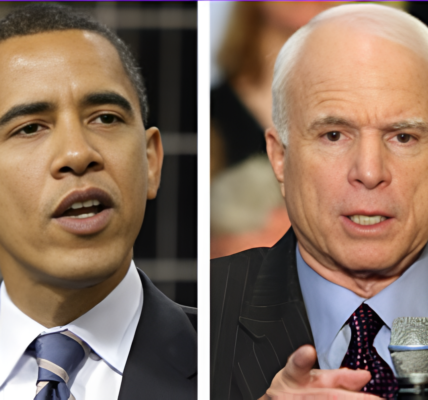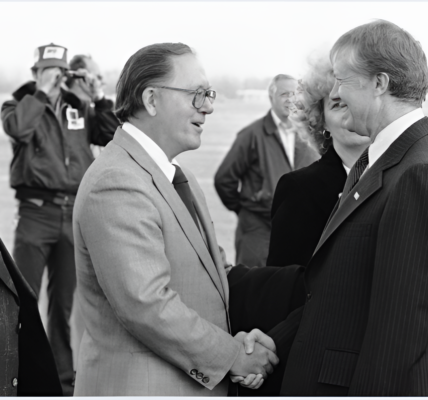
The passing of Jimmy Carter means more than the loss of a former president; it also marks the end of an era for progressive evangelicalism, a distinguished yet dwindling tradition in American religious and political life. Emerging from the Second Great Awakening of the 19th century, progressive evangelicalism was committed to social reform, prioritizing care for “the least of these,” as commanded by Jesus. Carter’s life and legacy were steeped in this ethos, but his 1980 electoral defeat to Ronald Reagan and the rise of the Religious Right dealt a near-fatal blow to the movement.
For decades, Carter stood as a symbol of this tradition, embodying its values both in and out of office. His electoral success in 1976 was buoyed by a nation yearning for moral leadership in the wake of Watergate, and Carter, the one-term governor of Georgia and Sunday school teacher from Plains, was seen as an honest outsider. Yet, the progressive evangelical revival that carried him to the presidency would be overshadowed by the meteoric rise of the Religious Right, which redefined evangelicalism in the United States as a conservative political force.

The Rise and Decline of Progressive Evangelicalism
The history of progressive evangelicalism begins in the teachings of Jesus and in 19th-century social reform movements. Evangelicals led the efforts to end slavery, bring about peace, gain women’s right to vote, and extend public education. Anti-slavery activism stands out as the pinnacle of their power.
This legacy continued into the 20th century, with figures such as William Jennings Bryan, the “Great Commoner,” who advocated for worker’s rights and gender equality. However, the Scopes trial of 1925, where Bryan argued against teaching evolution in public schools, marked a turning point. Evangelicals faced humiliation in the broader cultural arena, prompting a retreat from politics that lasted for decades.
In the mid-20th century, many evangelicals became inward-looking in their focus on personal salvation and less concerned with social activism. Suspicion of “godless communism” and the influence of leaders such as Billy Graham gradually pushed the movement toward conservatism. Yet, in the 1970s, progressive evangelicalism saw a brief resurgence, propelled by opposition to the Vietnam War and a renewed commitment to social justice.
This renewal climaxed in the 1973 Chicago Declaration of Evangelical Social Concern, a manifesto that condemned racism, militarism, poverty, and sexism. Carter’s own speech at the University of Georgia Law School in 1974 was no different in its themes, blending Niebuhr’s theological insights with Bob Dylan’s cultural resonance.

Carter’s Presidency and Evangelical Principles
With a pledge to fairness and equality, first principles of his faith, Carter entered the White House. He espoused human rights, moral diplomacy over Cold War dualism, even if it cost alienating some of the U.S.’s closest allies. His administration renegotiated the Panama Canal treaties and brokered the Camp David Accords, which brought peace between Israel and Egypt. During his term in office, no American soldier was killed in combat-peace was his creed.
Domestically, Carter was working for racial and gender equality, environmental protection strides, and reforms in energy. Environmentalists generally consider him to be one of the best environmental presidents because he showed foresight about renewable energy and conservation.
But the Carter presidency also underscored the difficulties of bringing progressive evangelical ideals to bear on governance. His moral rigidity and outsider status often left him isolated in Washington, and his reluctance to play political games undermined his ability to build coalitions.
The Religious Right
The election defeat of Carter to Reagan in 1980 symbolized a seismic shift in evangelical politics. Figures like Jerry Falwell and Pat Robertson headed the Religious Right, co-opting evangelical identity for conservative causes like opposition to abortion and the promotion of “family values.” It succeeded in portraying white evangelicals as an embattled minority even as their influence in American society grew.
Over the decades, this alignment deepened, culminating in the overwhelming support for Donald Trump—a figure whose personal conduct starkly contrasts with traditional evangelical principles. The rhetoric of victimization, coupled with a push to erode the separation of church and state, has solidified the Religious Right’s dominance, leaving little room for the progressive evangelicalism Carter represented.
Carter’s Legacy
Though Carter’s evangelical vision is no longer prominent in American politics, its influence persists. As president and international statesman, he proved that faith can energize peace making, stewardship of the earth, and justice. The post-presidency of humanitarian activity and human rights advocacy secured Carter as a moral leader.
Carter’s life reminds us of the transformative power of progressive evangelicalism, even as its presence in American politics has waned. His passing underscores the end of a tradition that prioritized compassion, equality, and peace over partisanship—a legacy that will continue to inspire those who seek to revive its principles in a divided world.





